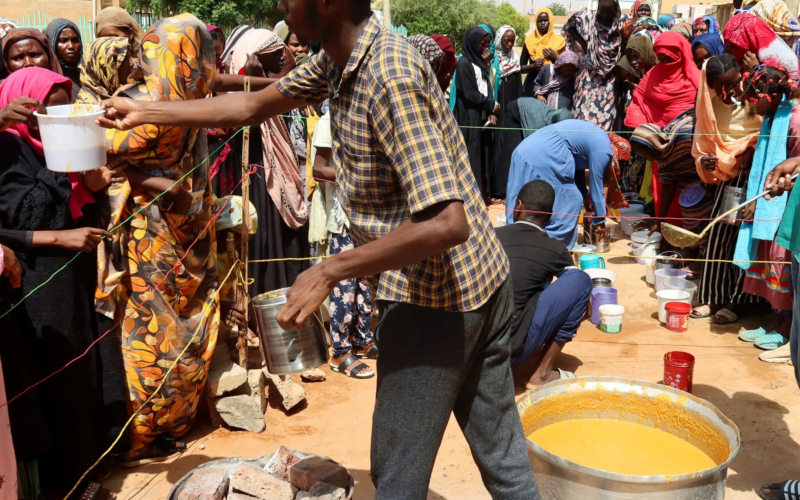At least 750,000 people in Sudan face imminent starvation as the country grapples with a devastating civil war that has driven over half of its 48 million inhabitants into chronic hunger, according to the latest findings by the Integrated Food Security Phase Classification (IPC), a global authority on famine.
The IPC, which comprises experts from U.N. agencies and leading relief organizations, reported on Thursday that 14 regions in Sudan, including parts of the capital Khartoum, are on the brink of famine. The alarming update underscores warnings from aid agencies that Sudan is on the verge of a humanitarian disaster not seen in decades.
“This is possibly the crisis of a generation,” remarked Edouard Rodier, Europe director for the Norwegian Refugee Council, who visited western Sudan recently. “I’ve never seen anything like it.”
The IPC report indicates that 25.6 million Sudanese are currently experiencing a food crisis. Of these, 8.5 million are acutely malnourished or struggling to survive, while 755,000 are in a “catastrophe” phase, facing conditions equivalent to famine.
Although the IPC has not formally declared a famine in Sudan due to challenges in gathering reliable data amidst ongoing conflict, there is broad consensus among experts that mass starvation is already occurring. The lack of accurate data is attributed to the collapse of Sudan’s health infrastructure and the difficulties aid workers face in accessing the most affected areas because of severe fighting and restrictions imposed by conflicting parties.
A senior U.N. official warned the Security Council in February that 222,000 Sudanese children could die in the coming months. A more recent study by the Clingendael Institute, a Dutch research organization, projects that up to 2.5 million people could succumb to hunger-related causes in Sudan by October.
“We may not see a famine declaration, but the starvation crisis is on a scale without parallel for 40 years or more, and it is going to kill hundreds of thousands of Sudanese,” stated Alex de Waal, a famine expert at Tufts University’s Fletcher School of Law and Diplomacy, in a recent podcast.
Since the outbreak of conflict in April 2023, approximately nine million Sudanese have been displaced, with estimates suggesting up to 150,000 fatalities. The most critical areas include the western region of Darfur, the capital Khartoum, and Jazeera State, known as the country’s breadbasket.
Samantha Power, head of the U.S. Agency for International Development (USAID), described the situation as “the single largest humanitarian crisis on the planet” during a briefing on June 14. She, along with other officials, has accused Sudan’s warring factions—the national military and the paramilitary Rapid Support Forces—of deliberately using starvation as a weapon of war.
Foreign involvement has also come under scrutiny, with allegations against the United Arab Emirates and Iran for their respective support of the Rapid Support Forces and the Sudanese military.
Despite the magnitude of the crisis, international attention remains limited compared to the high-profile response to the Darfur conflict two decades ago. The United Nations has received only 17% of the $2.7 billion it requested for Sudan.
“World leaders continue to go through the motions, expressing concern over Sudan’s crisis,” commented Tjada D’Oyen McKenna, CEO of Mercy Corps. “Yet they’ve failed to rise to the occasion.”








